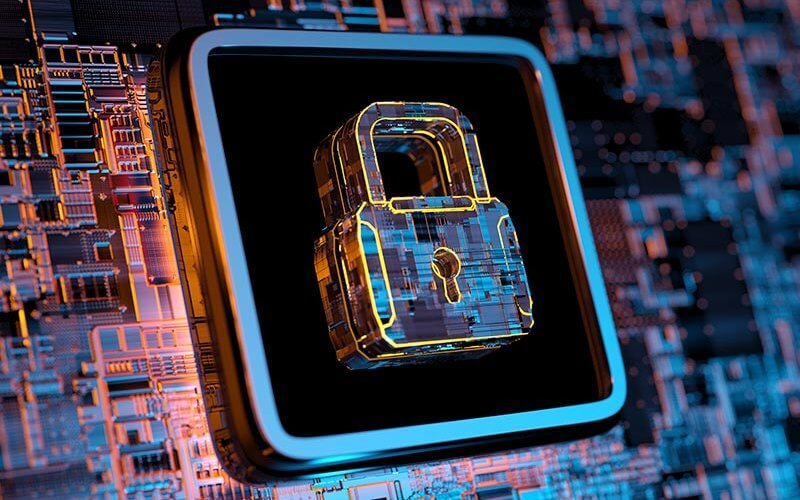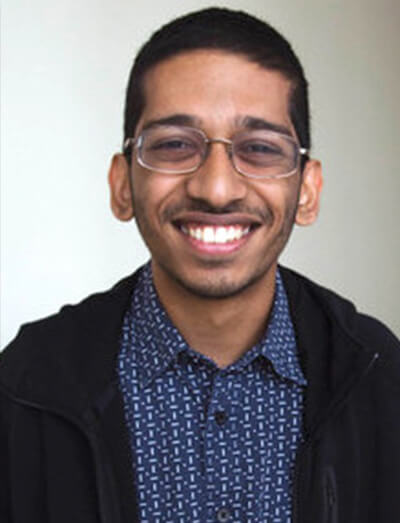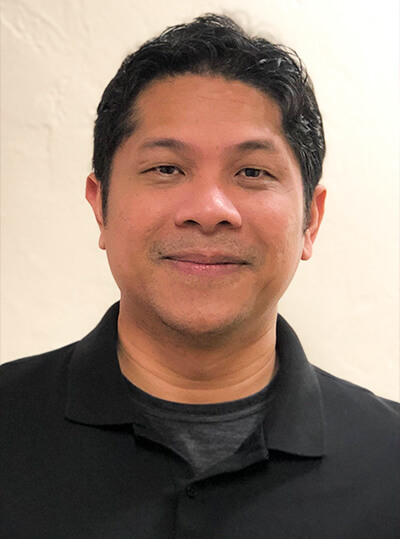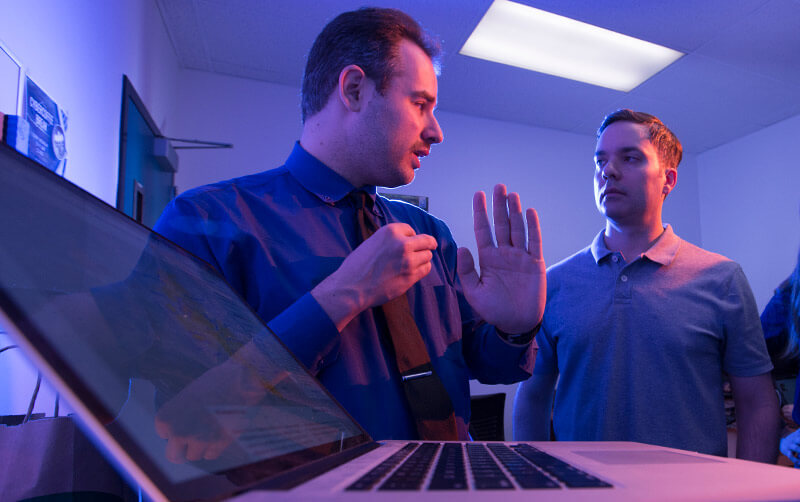
With the suspected Russian hacking attack uncovered this week and posing a threat to the U.S. government and thousands of businesses, Cal State Fullerton is on the forefront of preparing students for careers as cybersecurity professionals to prevent such critical security vulnerabilities to computer systems, networks and programs.
One of the ways CSUF is leading this charge is through students participating in collegiate competitions that focus on fictional cyberattack scenarios and how to improve the security of an organization.
After spending nine hours attempting to hack into a fictional water and power plant, a team of Titan cybersecurity students successfully cyberattacked the system to qualify for a spot in January’s National Collegiate Penetration Testing Competition.
The team of computer science majors qualified for the national stage following the western regional competition against such colleges as Stanford University and University of California campuses. For the regionals, 67 universities from across the globe competed in their respective qualifying competitions.
The CSUF team will face off against 15 universities in the national contest Jan. 7-10, which includes Rochester Institute of Technology (RIT), Bournemouth University in England and RIT-Dubai, among other institutions. This year, the competition will be held virtually due to the coronavirus pandemic.

“The team is looking forward to networking and meeting industry leaders who organize this competition,” said junior Josiah Peedikayil, team captain and president of the Offensive Security Society student club.
The team members, all active in the Offensive Security Society, are: senior Rojan Rijal; juniors Josh Ibad, David Johnson and Rian Luzio; and sophomore Yao Lin.

Their coach is alumnus Hernan Manabat, a lecturer in computer science. A staff operating systems analyst in the College of Engineering and Computer Science, Manabat earned a master’s degree in computer science in 2015 at CSUF. Mikhail Gofman, associate professor of computer science and director of CSUF’s Center for Cybersecurity, is the faculty adviser for the Offensive Security Society.
Preparing the Next Generation of Cybersecurity Professionals

The national competition, which focuses on preparing the next generation of cybersecurity professionals, gives students the opportunity to perform cybersecurity activities that mimic real-world penetration testing employed by various industries around the globe. Penetration testing is part of the broader security philosophy called offensive security, in which students learn methodologies to protect computer systems from cyberattacks, as well as how to respond, Gofman said.
“This team certainly has the technical prowess and business acumen to make it challenging for the remaining teams. Along with their grit and resilience, these students enjoy solving problems in the cybersecurity domain and working together as a unit,” Manabat said.
“The students have a chance to make a name for themselves in the coming new year and reach for their goal of making it to the top. I have no doubt that they will give it their all.”
The competition helps students develop cybersecurity skills, identify and report risks, along with recommendations to fix security issues that are discovered, added Peedikayil, who plans a career in penetration testing. Students also showcase soft skills in writing and communication, and write a report documenting the results.
“All of the security work is done in real time, where the students perform the penetration testing during the day and the documentation night, with the competition ending at 1 in the morning,” he said.
The main change for the nearly 17-hour competition this year is competing remotely, instead of in-person and working side-by-side.
“For the regional competition, we had to adjust to communicating via Zoom and not being able to see teammates’ screens,” Peedikayil said.